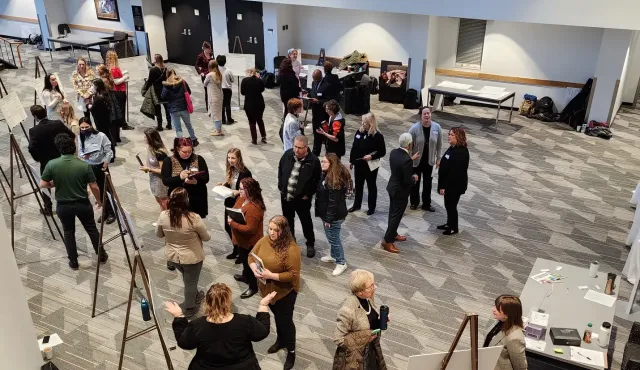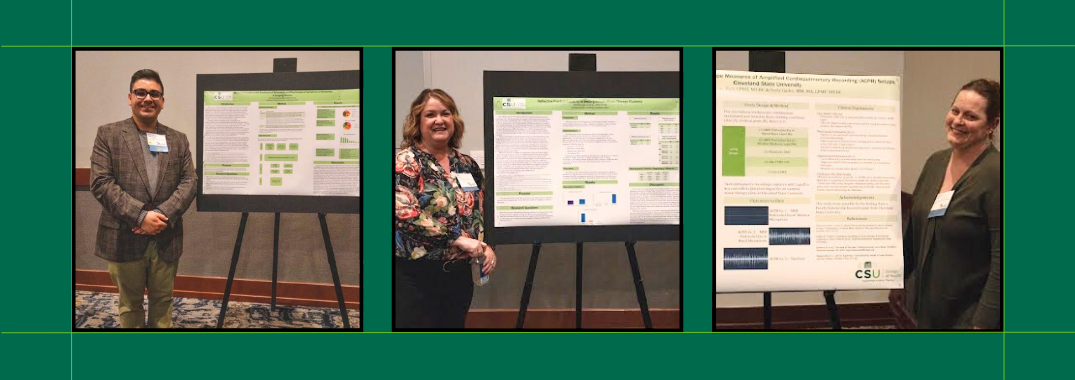STUDENT SPOTLIGHTS
Faculty Research Project: Group Music Therapy for Mental Health in Unhoused Communities
In the summer of 2024, Dr. Layman and Professor Lundeen-Smith received an institutional grant to launch the research project "The Feasibility of Group Music Therapy in Addressing Mental Health Needs of Unhoused Persons." This impactful project provided two of our undergraduate music therapy students with hands-on experience leading therapeutic group sessions, empowering them to support vulnerable populations while honing their clinical skills.
This fall, our team proudly shared their findings with the academic community. Audrey, one of our student researchers, presented a poster of the project at the 2024 Undergraduate Research Poster Session, where she received an Outstanding Poster award and earned an invitation to lunch with the Provost—a testament to the hard work and dedication invested by all involved.
Mailing Address
2121 Euclid Ave., MU 111
Cleveland, OH 44115
Campus Location
Music and Communication Building
2001 Euclid Avenue
Room 111
Cleveland, OH 44115
Contact
Phone: (216) 687-3807
musictherapy@csuohio.edu


